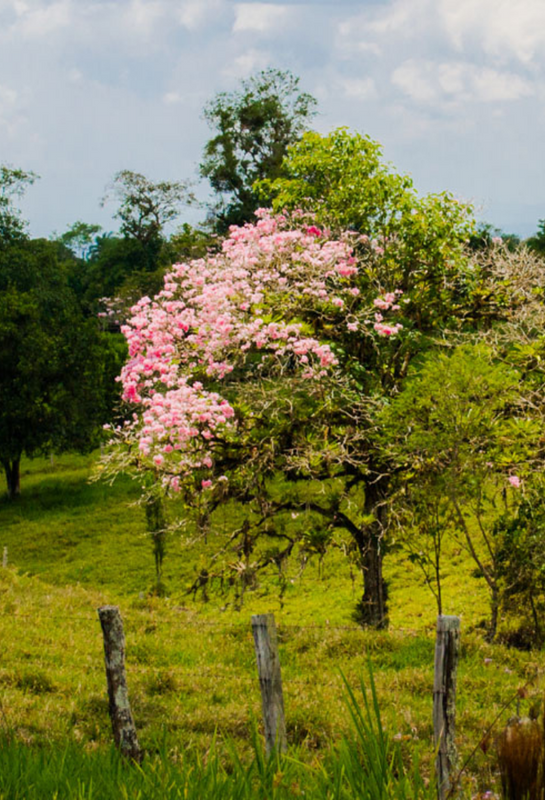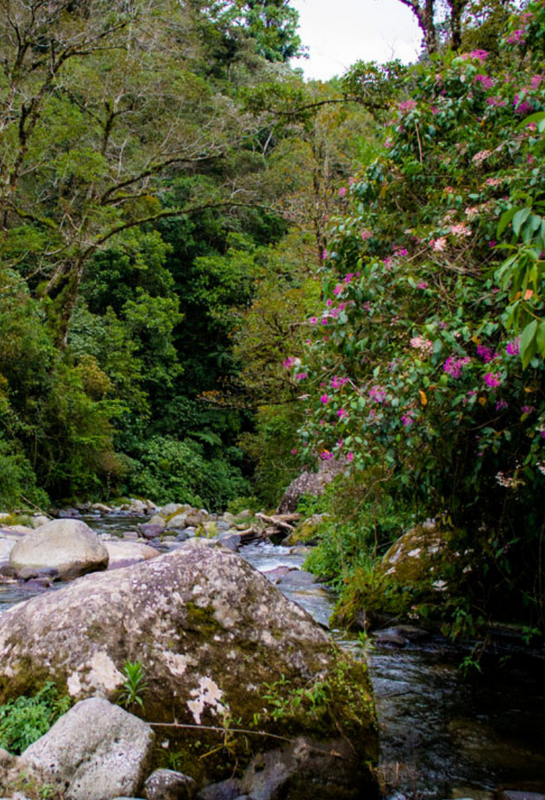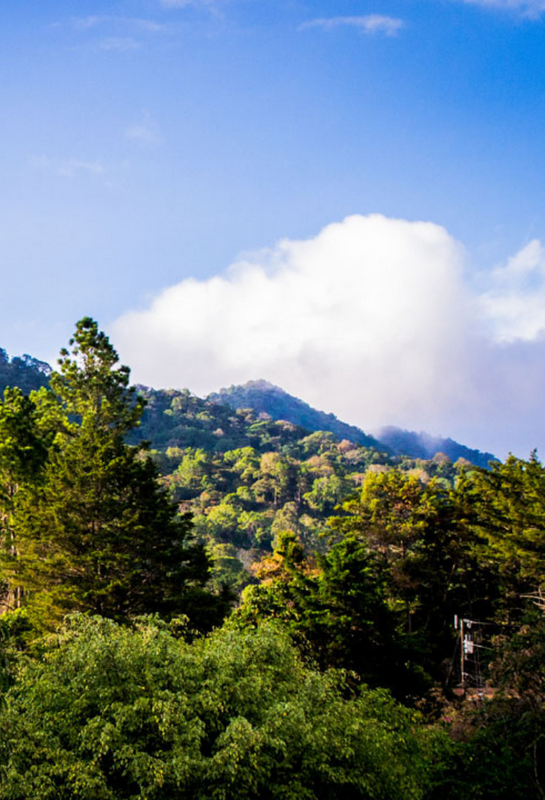
Oprindelse
Panama
Region
Volcan-Boquete
Sorter
Geisha
Forarbejdning
Carbonic Maceration
Afgrødeår
2021
Højde
1900m.
This washed CM Geisha is a clean & invigorating coffee. It represents the terroir of Finca Deborah with elegant floral & citrus notes compelled with a sparkling acidity & creamy mouthfeel developed with the Carbonic Maceration process.
The Carbonic Maceration process has been used in the wine industry for several decades. Yet, the application of this process in coffee is only a few years old. In 2015, Jamison was one of the first in the world to start working with the CM process with coffee. Over the last 3 years he has employed several different techniques using CM and has gained a reputation as an industry leader in Carbonic Maceration coffee processing.
Processing
The process starts with harvesting perfectly ripe Geisha cherries reading 21-24 on BRIX. The cherries are then carefully selected for a second time before processing. After selection the cherries are pulped, leaving a certain percentage of fruit on the grain. It is then tanked for an extended period with constant monitoring and cataloging of PH, temperature, and CO2 levels. Ambient temperatures are monitored and controlled to ensure linearity in the processing.
After the required time inside the CO2 infused tanks, the coffee is removed, then placed on shaded, raised drying beds. Direct sunlight is avoided as the intense UV and heat can cause cracking in parchment. Temperatures, heat, and humidity are controlled inside the dry houses and are carefully maintained within certain parameters.
When the coffee has dried to approximately 11% it is bagged in grain-pro and stored in Bodega where temperatures are cool and stable. This seasoning process is critical to Deborah’s quality control. Reposo/rest provides the coffee an opportunity to settle and equalize its moisture content as well as absorb more flavor from it’s shell or parchment. After the requisite rest the coffee is hulled, sorted by size, density, color, and shape.
Jamison’s coffees have won numerous titles in Barista and Brewer’s Cup competitions, both national and international. In 2017, Deborah Washed Carbonic Maceration Geisha placed 2nd in the World Brewer’s Cup and 5th in the World Barista Championship and most recently 2nd and 4th in the 2019 WBC, Boston.
Brewing Instructions
To fully express Savage Coffees’ potential we recommend brewing them with care and attention to details.
Water
Water makes up 90 to 98.5% of brewed coffee. It’s important to use only fresh, filtered and soft water to fully extract flavors & keep your equipment reliable for years. We recommend the following water parameters:
- TDS 70-120 ppm
- pH = 7.0
- General hardness level <4°dH
- Brewing temperature: 94-96°C / 201.2-204.8°F
- Use filtered or low mineral content spring water
Brewing Tips
- After opening keep your beans in air-tight container. Do not keep them refrigerated.
- Our coffees taste great in wide range of brewing methods (pour over, immersion, batch brew, espresso.)
- For espresso, always flush the group head before extracting the coffee, and for filter brewing rinse paper filter in your brewer with hot water prior to extracting the coffee.
- Grinding setup will vary depending on the method of extraction & desired cup profile.
- For espresso we recommend using precision baskets & shower screens for optimal extraction.
Brewing Ratios
Filter coffee:
- 60-65 g of coffee per 1 liter of water
- 1:15 coffee to water ratio
- Pour over extraction time: 2:45 – 3:45 min.
- Batch brewer extraction time: 3:30 – 4:30 min.
Espresso:
- Dose: 19-21 g
- Yield: 50-55 g
- Time: 24-27 s
Ristningsgrad
1 ud af 6
Smagsnoter
Notes of stone fruit, jasmine flowers, vanilla, citrus this, champagne & black tea
Ristning
Stronghold S7
Batch størrelse
250g - 750g
Sluttemperatur
°C
Tid
minutter
Kaffeproduktionen i Panama har en lang og rig historie, der går tilbage til slutningen af det 19. århundrede. De første kaffeplanter blev introduceret til Panama i 1850'erne af spanske immigranter og blev hurtigt en vigtig del af landets landbrugsindustri.
I begyndelsen af det 20. århundrede oplevede Panama et boom i kaffeproduktionen, hvor mange store kaffeplantager blev etableret i Chiriqui-provinsen. Dette område blev kendt for sin kaffe af høj kvalitet, og i 1930'erne eksporterede Panama store mængder kaffe til Europa og Nordamerika.
Midt i det 20. århundrede oplevede kaffeproduktionen i Panama dog et fald på grund af en kombination af faktorer, herunder tab af jord til andre afgrøder, spredning af sygdomme og manglende investeringer i kaffeproduktionen. Som følge heraf faldt kaffeproduktionen dramatisk, og i 1980'erne var den ikke længere en væsentlig del af landets økonomi.
I de senere år har kaffeproduktionen i Panama oplevet en genopblomstring, delvist drevet af den stigende efterspørgsel efter specialkaffe af høj kvalitet. Dette har ført til udviklingen af nye kaffesorter, såsom den berømte Geisha-kaffe, samt væksten i småskala kaffeproduktionssamfund.
I dag er Panama igen en betydelig kaffeproducent med en blomstrende specialkaffeindustri, der eksporterer kaffe af høj kvalitet til kaffeglade mennesker verden over. Landets kaffeindustri fortsætter med at vokse og udvikle sig og er en vigtig del af Panamas økonomi og kulturarv.

FINCA DEBORAH
Finca Deborah is shrouded in rainforest cloud coverage for much of the year. The plantation is a beautiful, natural environment where rare species of plants and animals are abundant, left undisturbed under the canopy. No gas powered machines, harsh chemical pesticides or herbicides are used during the cultivation of the farm. Natural, organic fertilizers are used in combination with organic weed control to maintain a balance between the coffee trees and unwanted undergrowth.
Because of Finca Deborah’s lofty altitude, diseases are naturally kept to a minimum. Temperature alone makes for an inhospitable place for fungal issues and other unwanted diseases. This allows the coffee trees to focus on producing beautiful fruit instead of wasting valuable energy defending themselves from disease. Insect concerns are also minimized due to the elevation. These positive benefits are felt administratively as well and translate into lower costs and reduced production volatility.

The extreme elevation and reduced temperature slows the metabolism of the trees. These cold temperatures, reaching 10 C, permit the trees to push more sugars into the cherries during production. Additionally, Deborah has ideal rainfall averaging 2200 mm per year. Combined, these two important variables contribute greatly to Deborah’s intensely sweet and complex cup profile. It is an extraordinary environment for growing any variety of coffee, but here one of the world’s most complicated varieties of coffee, Geisha, not only grows successfully but also thrives.

VOLCAN-BOQUETE
The Panamanian coffee industry is centered in the Chiriquí province of Panama’s northern highlands and is concentrated in the areas of Boquete, Volcán, and Renacimiento. Also called the Valley of Flowers and Eternal Spring, these areas are perched on the sides of the Baru Volcano and overlook the beautiful Caldera River. It is in these idyllic locales that the truly distinct and unique coffees are produced. The highlands are blessed with volcanic enriched soil, abundant moisture, regular rainfall, dense vegetation, and cloud cover to nourish the coffee trees, which in turn produce high grade beans with rich flavor. The many different microclimates also assist in producing coffee beans with a great variety of taste characteristics.






